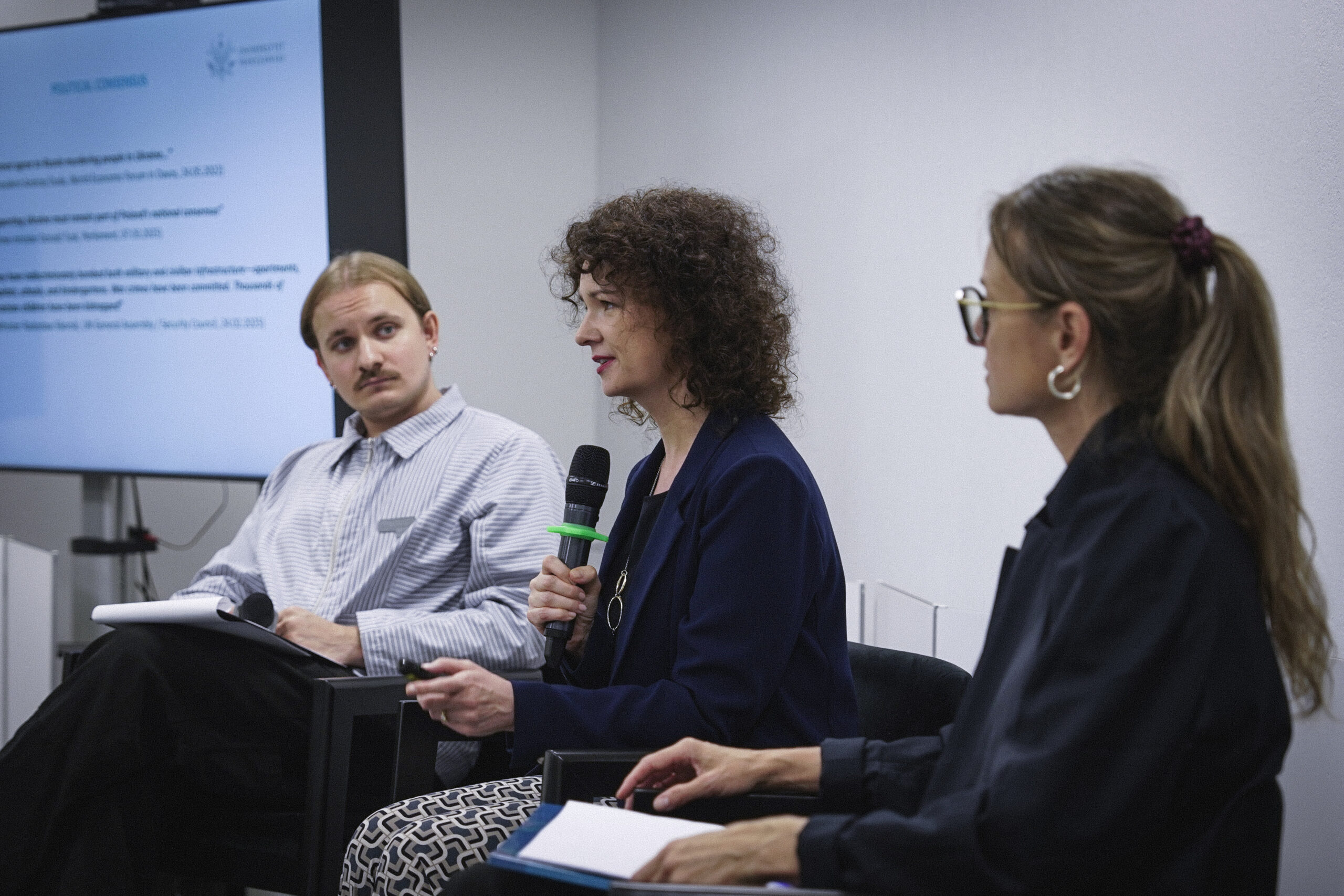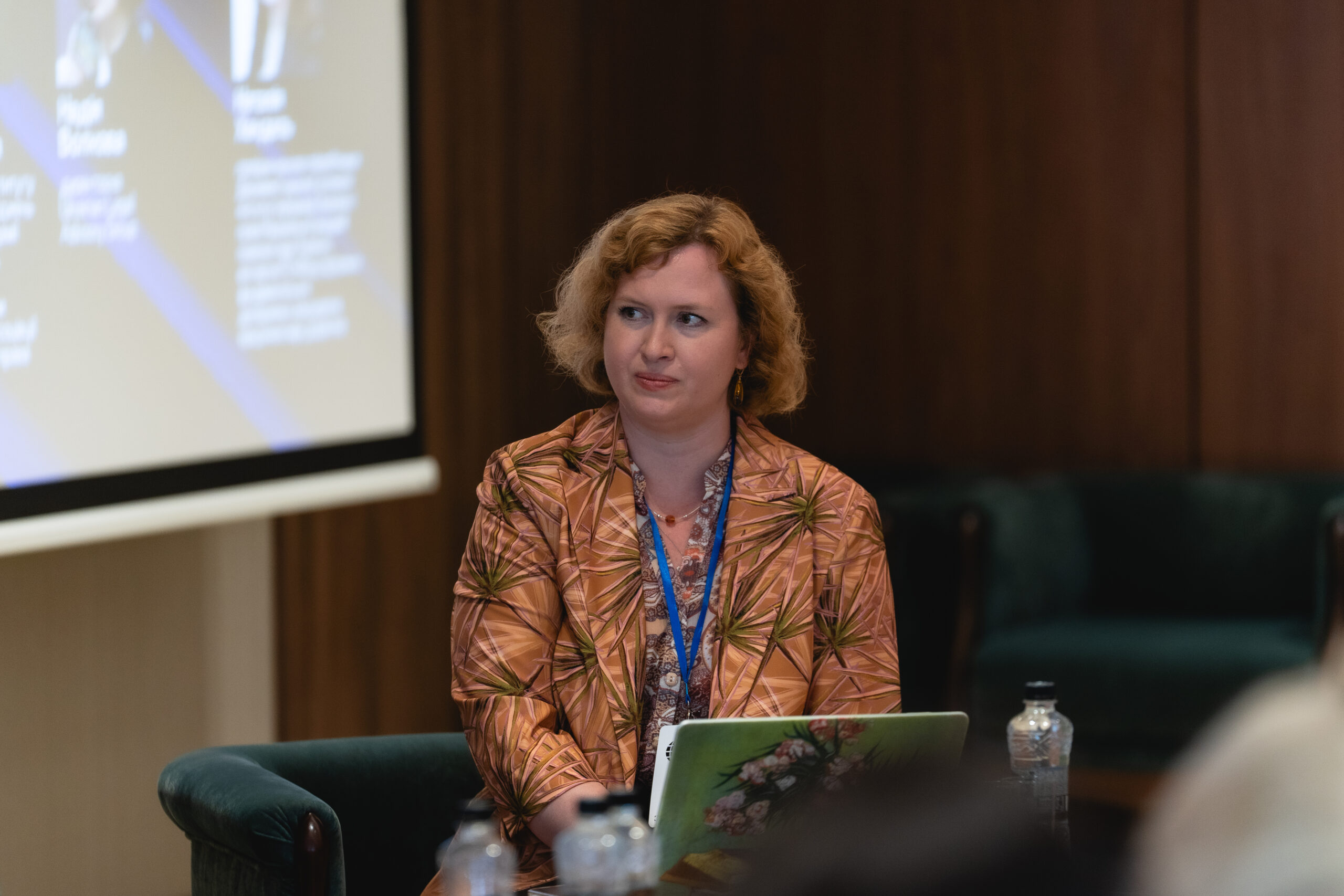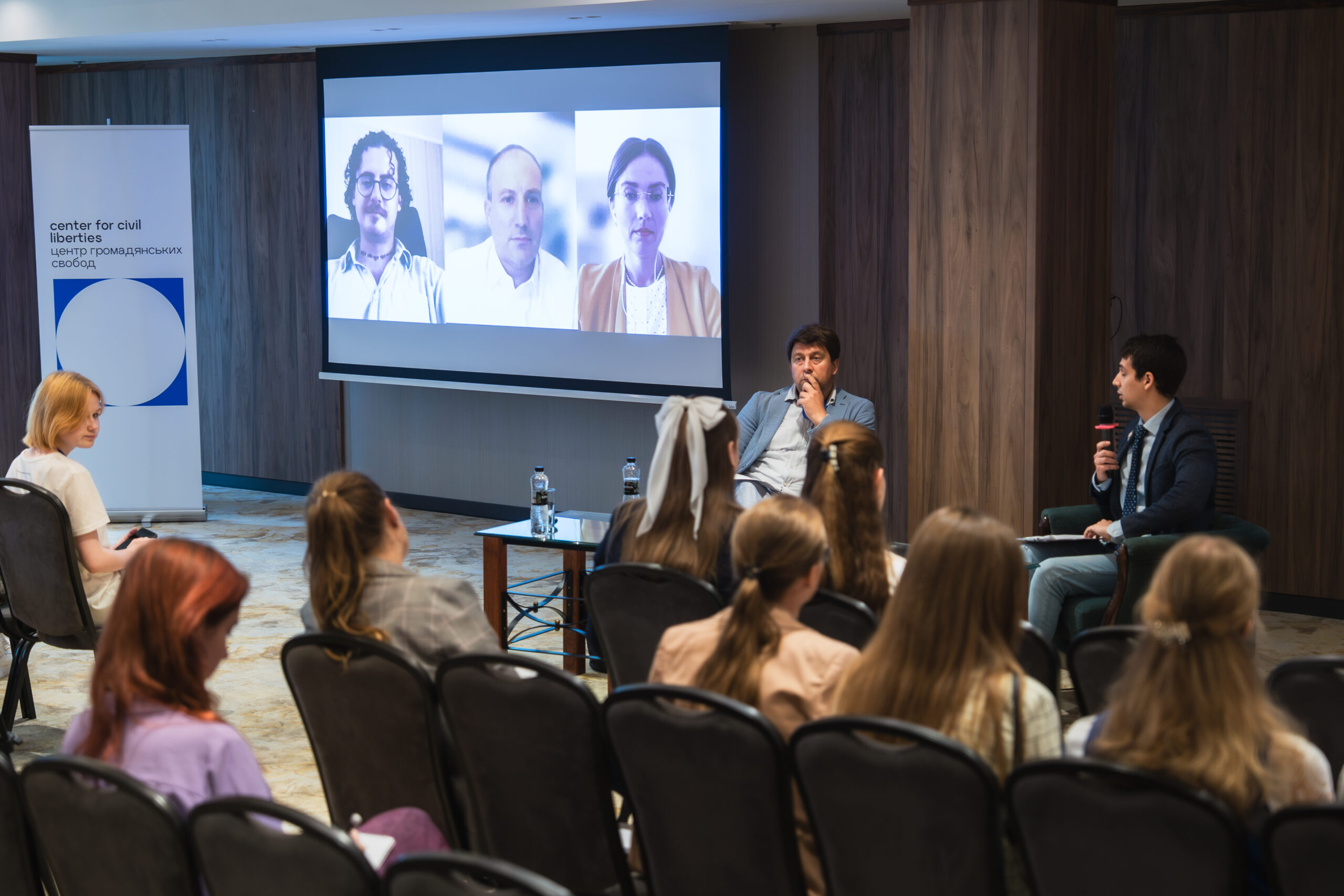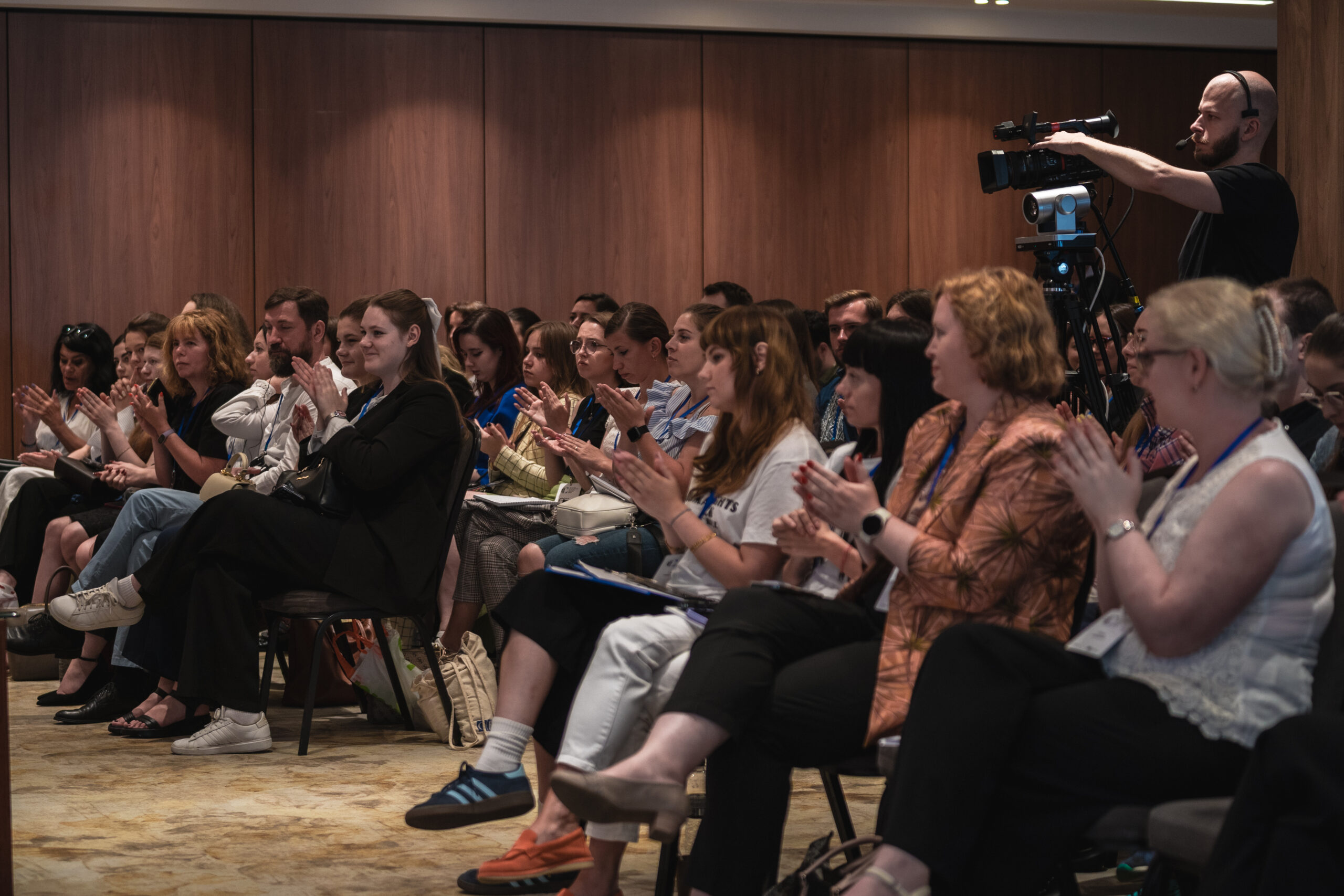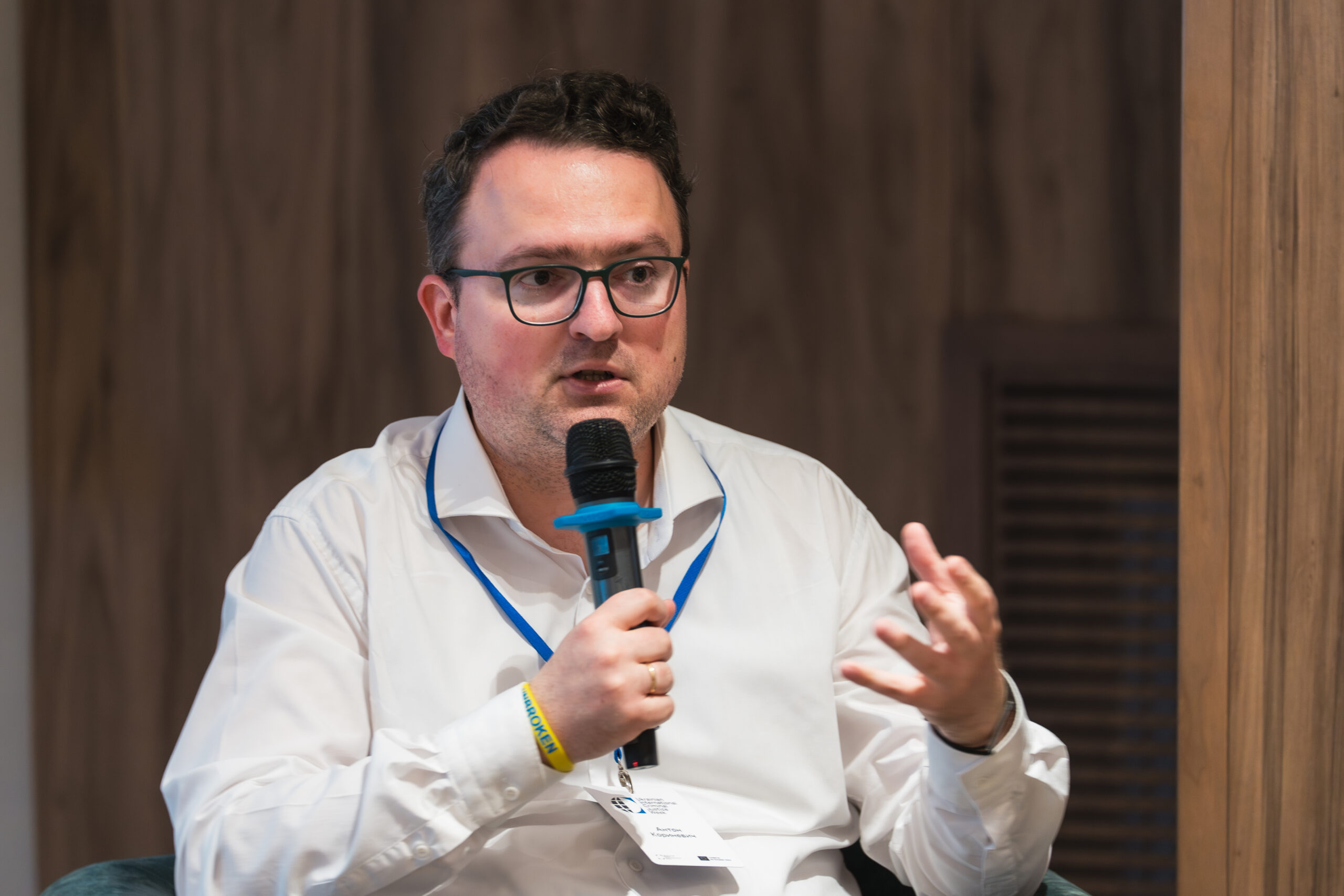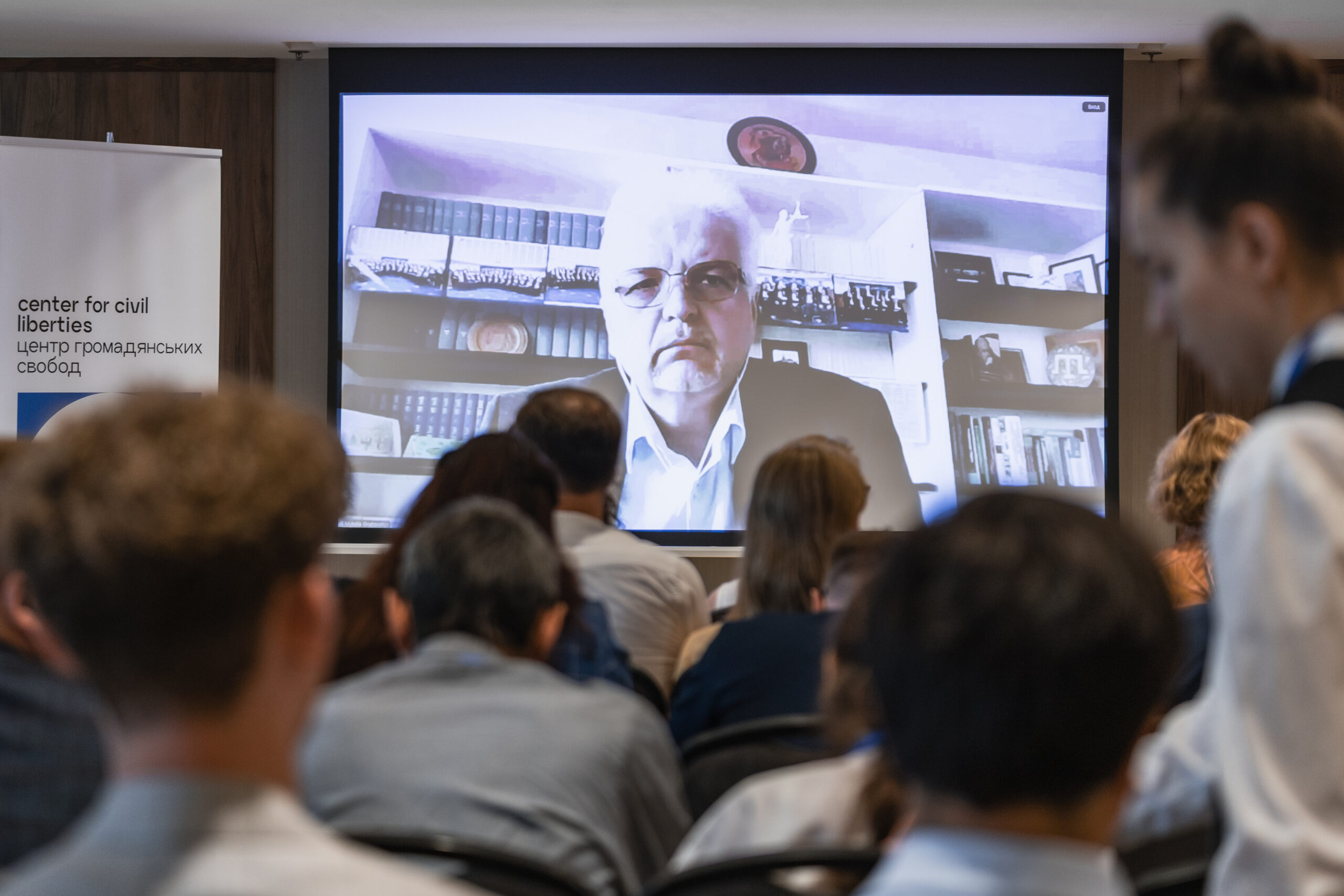On July 16, Center for Civil Liberties held a public Q&A session “How does Poland facilitate the investigation of international crimes committed by Russia in Ukraine?”, focused on war crimes that Poland is investigating under the principle of universal jurisdiction, as part of the Ukrainian Week of International Criminal Justice. The discussion centered on Poland’s capacity to hold perpetrators accountable in its courts and at the international level, as well as Polish initiatives to establish a special tribunal for the crime of aggression. The event took place amid an especially urgent need for international solidarity and justice.
The full-scale Russian invasion of Ukraine has resulted in thousands of gross violations of international law, including war crimes, crimes against humanity, and potentially genocide. Poland plays an important role in responding to these crimes — both through legal mechanisms and at the political level. The participants of the discussion explored how Poland’s response to these challenges is currently shaping and what this response could mean for the prospects of achieving justice during the war.
The session featured Hanna Kuchynska — professor at the Institute of Legal Studies of the Polish Academy of Sciences in Warsaw, who specializes in international criminal law and is the president of the Polish section of the International Association of Criminal Law, and Agnieszka Bieńczyk-Missala professor of political science, researcher, and lecturer at the Faculty of Political Science and International Studies at the University of Warsaw.
Hanna Kuchynska emphasized that the investigation of crimes committed by Russia in Ukraine is not “assistance to Ukraine” or “a contribution to the work of the International Criminal Court,” but a direct obligation of every state under international law.
Poland must fulfill this obligation within the limits of its own jurisdiction and institutional capabilities.
The Polish prosecution service has been investigating these crimes since February 28, 2022. The proceedings are centralized within the National Prosecutor’s Office in Warsaw and cover the crime of aggression and war crimes. Polish prosecutors are participating in the Joint Investigation Team (JIT), established under the coordination of Eurojust. Although the investigation is not being conducted on the basis of universal jurisdiction, the principle of protection is applied, treating these acts as a threat to Poland’s national security.
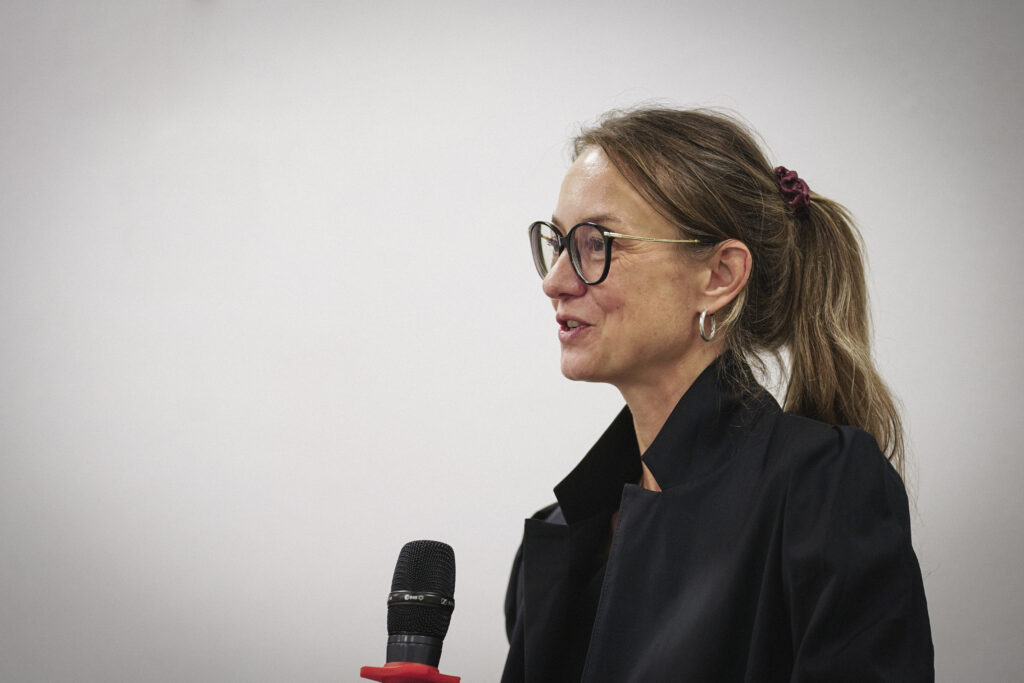
Currently, only three prosecutors are working on these cases alongside other criminal proceedings. A specialized unit for investigation of international crimes has not yet been established. In light of this, there is a call for the Polish authorities to issue national arrest warrants for members of the Russian leadership. It is crucial to make the public aware that investigation of international crimes is Poland’s obligation in accordance with international law and is in Poland’s interest of national security.
Poland is conducting its first large-scale investigation of international crimes since World War II. A lack of experience and legislative limitations complicate the process. In particular, Polish law does not allow trials in absentia: for a case to be brought to court, the accused must be physically present. At the same time, a person can be declared internationally wanted based on an arrest warrant issued by a Polish court.
In Poland, the principle of universal jurisdiction has not yet been properly implemented. To effectively prosecute the guilty, it is necessary to introduce unconditional universal jurisdiction, establish a specialized unit, and provide resources to the prosecution service. Polish human rights defenders and experts also insist on the need for trials in absentia — at least in cases involving international crimes.
A key tool for international cooperation is JIT. This mechanism allows participating countries to freely exchange evidence without using mutual legal assistance (MLA) procedures, which significantly expedites the process. Additionally, Polish and Ukrainian prosecutors regularly meet under the auspices of Eurojust and Genocide Prosecution Network, which enhances coordination and the expertise exchange.
In the Polish criminal procedure, a suspect can be officially recognized only in their personal presence — without this, it is impossible to deliver a notice of suspicion, advance the investigation, or refer the case to court. If the person is unreachable, the prosecutor petitions the court for an arrest warrant, which allows for the person to be declared internationally wanted. However, until the suspect is detained, the investigation effectively comes to a halt. At the trial stage, the personal presence of the accused is mandatory for serious crimes (those punishable by more than three years of imprisonment), so trials in absentia are currently not permitted. There is discussion about the possibility of changing the procedure, but only for international crimes.
Polish legislation does not have specific provisions regarding decisions of Ukrainian courts made in absentia, but applies EU standards and Article 6 of the European Convention on Human Rights. If these standards are met, Polish courts may recognize such verdicts. Bilateral and international agreements do not prohibit this, and if the accused appears, the case may be reopened.
Therefore, Poland has every reason and the necessary tools to take a more active role in holding perpetrators of international crimes accountable. However, this requires political will, a clear strategy, legislative changes, and pressure from civil society. Support from the media, expert community, and the public is already shaping a demand for justice, and thanks to this demand, the Polish justice system has a chance to become an effective instrument of international accountability.
Agnieszka Bieńszik-Missala highlighted Poland’s international activities, noting that this is where the country is “truly making its contribution.”
According to her, a political consensus has formed in Poland regarding the necessity of investigating and punishing Russian crimes in Ukraine, and no major political force opposes this.
Although this issue is rarely raised at the highest levels of Polish-Ukrainian relations, it is regarded as strategically important and is actively discussed at the practical level among legal professionals. Agnieszka reminded that Poland’s Foreign Minister Radosław Sikorski has repeatedly strongly responded to Russian disinformation about Ukraine during UN Security Council meetings.
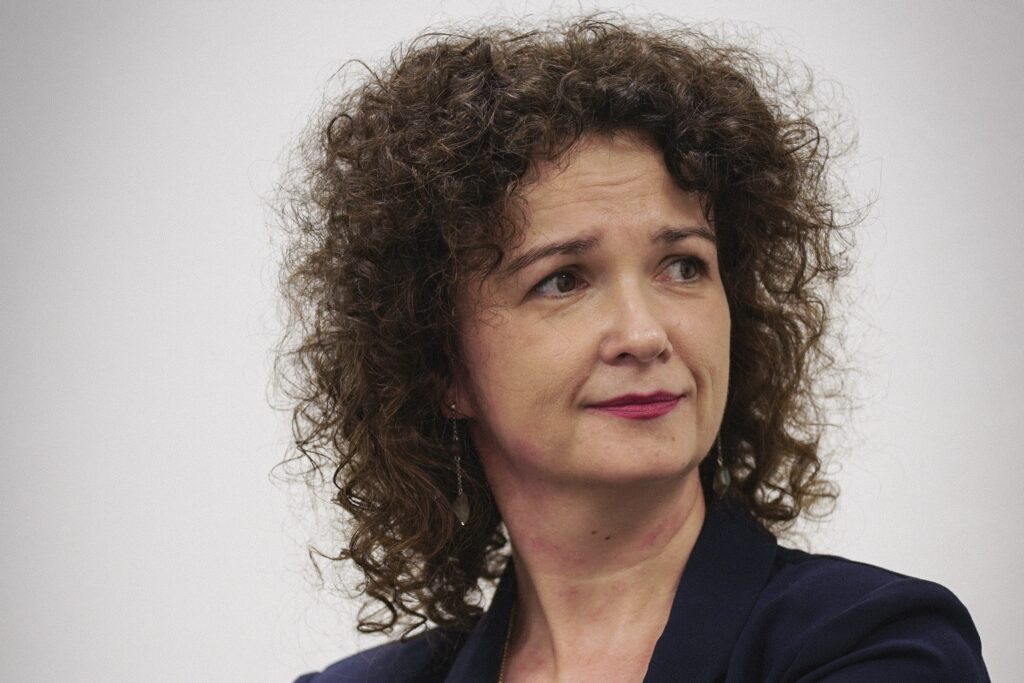
Poland considers combating Russian disinformation one of its key tasks, particularly regarding justifications of aggression and accusations of Ukraine of “Nazism.” Since the start of the full-scale war, Poland has actively acted as a joint initiator of resolutions at the UN General Assembly and the Human Rights Council, supports independent monitoring mechanisms of the situation in Ukraine and Russia, and organizes informational events, including exhibitions that evoke strong emotional responses — such as the presentation of drawings by Polish children from World War II alongside those by today’s Ukrainian children.
Poland also devotes attention to international initiative to adopt a convention on crimes against humanity. This agreement aims to fill existing gaps, particularly in the definition of genocide, and incorporates specific provisions for the protection of children taking into account the cases of forced displacement of Ukrainian children coordinated by Russia.
Poland actively cooperates with the International Criminal Court (ICC). The country has signed an agreement allowing the arrest on Polish territory of those convicted by the ICC, preparing to enforce punishment in the event of a verdict, for example, against President Putin. Polish representatives also support the Kampala Amendments, which aim to expand the Court’s jurisdiction over the crime of aggression, regardless of decisions made by the UN Security Council.
At the same time, in 2025, Poland’s stance on the ICC arrest warrant for Israeli Prime Minister Netanyahu raised concerns among human rights activists and scholars. The lack of a clear response to alleged crimes in the Gaza Strip led to accusations of double standards, which undermines efforts to hold perpetrators of Russian crimes accountable.
In January 2025, Poland marked the anniversary of the liberation of the Auschwitz camp. In connection with the ICC arrest warrant for Israeli Prime Minister Netanyahu, a debate began in the country regarding his possible visit. The Polish government issued a vague statement concerning the “security” of the participation of Israeli leaders, which raised doubts about Poland’s reputation.
During its presidency of the EU Council, Poland placed special emphasis on the issue of accountability for international crimes committed on the territory of Ukraine. Among the 80 events organized were the seminar “From Nuremberg to The Hague” and a commemoration marking the anniversary of the Bucha tragedy. Warsaw actively promoted the establishment of a Special Tribunal for the crime of aggression and the development of the International Register of Damage in cooperation with the Council of Europe.
Regarding the prospects for the tribunal: decisions in 2026 are possible only if some preliminary processes have already been completed not publicly — if evidence has been collected and judges were selected. It is currently known that the tribunal will not be able to prosecute individuals with immunity. However, the very fact of its establishment is already a success and a demonstration of European unity. Both experts noted that quick decisions should not be expected — international justice requires time, unlike an impatient public. This tribunal raises justified expectations but requires patience. The statute is complex, creating many challenges for interpretation and organization of work. Even the working language of the proceedings has not been definitively established — judges will be able to choose a different language for each case, although English will be the primary language.
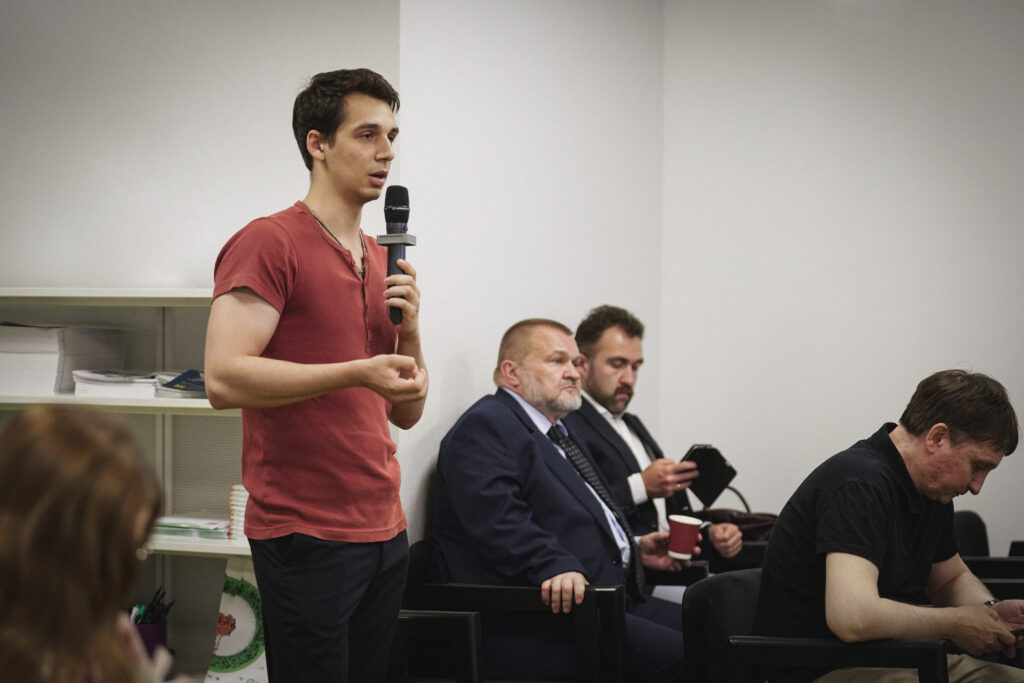
During the Q&A session, Valentyn Serdiuk, legal analyst at the Center for Civil Liberties, emphasized the importance of universal jurisdiction as a tool for international security. He asked whether this provision is directly included in Polish criminal procedural law and what procedural or constitutional challenges exist in its application.
Hanna Kuchynska responded that universal jurisdiction is not merely a theoretical concept. It emerged as a response to real demands from victims who identified their persecutors in European countries. Currently, Poland has only one case invoking the principle of universal jurisdiction — regarding crimes committed in Belarus. Although the prosecutor initially refused to open proceedings, the court recognized the existence of jurisdiction. Due to unclear wording of the relevant provision in the Polish Criminal Code, issuing arrest warrants is complicated. For this reason, there is ongoing work to produce a clearer edition with the Codification Commission. At the same time, training for prosecutors and judges in international criminal law is already included in the official education program.
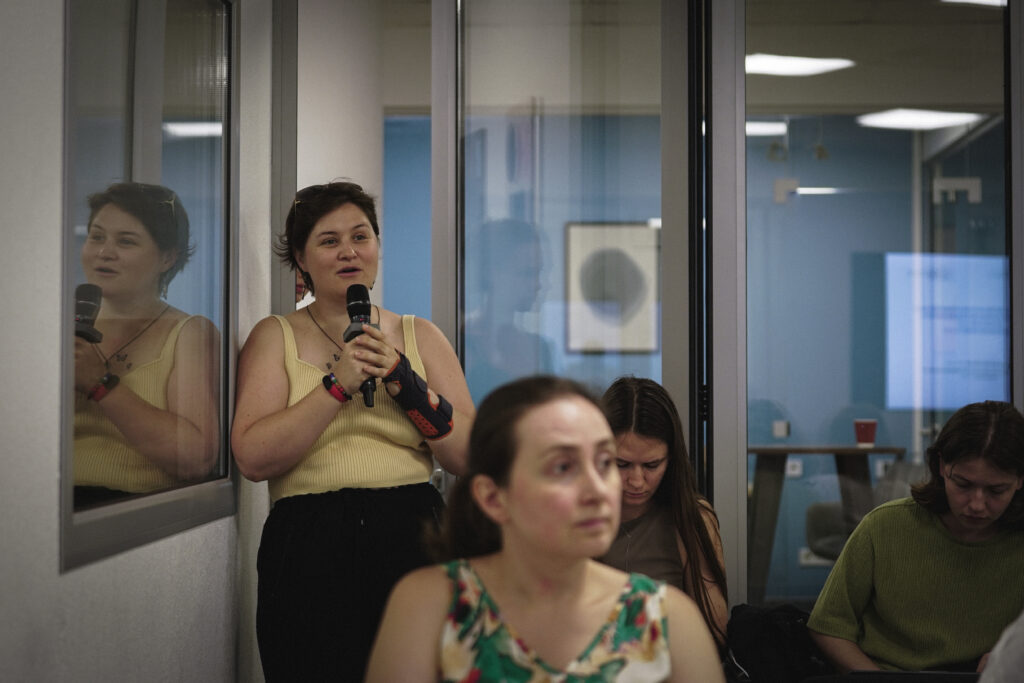
Human rights advocate Oleksandra Romantsova posed two key questions: about the possibility of expanding the scope of the International Register of Damage to victims of the war since 2014, and about the prospects of recognizing Russia’s actions as genocide at the International Criminal Court. Agnieszka Bieńszik-Missala emphasized that Poland has a clear understanding that the war began precisely in 2014. This is reflected both in publications and public discussions, despite the fact that, at the level of international political agreements, the key date is often indicated as February 24, 2022. She noted that Poland has the potential to become a leader in promoting initiatives aimed at restoring justice for all those affected. Regarding the prospects of genocide recognition, particularly in the context of the forced deportation of Ukrainian children, the professor stated that currently the ICC classifies these actions as war crimes, and there is no basis yet to assert that the Court will recognize them as genocide.
Hanna Kuchynska emphasized that the answer to the question of who committed the crime of aggression is obvious — it is the starting point for all other crimes. That is why it is sometimes called the “mother of all crimes,” as it paves the way for committing other international crimes. She stressed that Poland has all the prerequisites to become a leader in supporting Ukraine — due to close historical and cultural ties and a shared present: “We are already living in one society.”
To conclude, the discussion covered the cooperation between Ukraine and Poland within the framework JIT. Kuchynska emphasized that this format enables the swift exchange of evidence between countries: for example, if a witness mentions a specific filtration site, prosecutors can obtain information about it from other countries and gather a wider evidentiary base regarding the individuals involved. Personal meetings of prosecutors and work within the Genocide Investigation Network play a particularly important role in this process.
The role of the civil society sector is equally significant. According to Kuchynska, this is the first time in Poland’s history that NGOs have collaborated so closely with the prosecutor’s office. Five Polish organizations documenting war crimes in Ukraine have united into a coalition, sharing a common platform, coordinating actions, applying jointly for funding, and holding meetings with ministers and diplomats. The Ukrainian NGO Opora, operating in Poland, is one of the most active — it has provided Polish investigators with over 2,000 witnesses for interrogation. Other organizations, such as the Lemkin Center, the Torture Victims Foundation, the Helsinki Human Rights Union, and the Sunflowers project, complement this work — some focus on testimonies from occupied territories, others on psychological support, and others on creating online platforms for collecting testimonies.
It was specifically emphasized that, due to the traumatic experiences of witnesses, NGOs sometimes provide safe spaces for interrogations and psychological support — unlike prosecutor’s offices, which often have a militarized appearance and can be intimidating. Hanna Kuchynska concluded her remarks with a call to support the NGO coalition actively advocating for the issuance of international arrest warrants for perpetrators
Summary prepared by Olga Zubrytska, volunteer at the Center for Civil Liberties.

